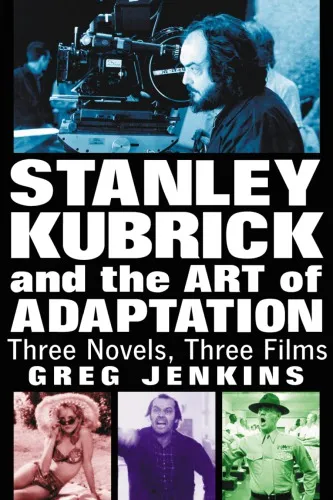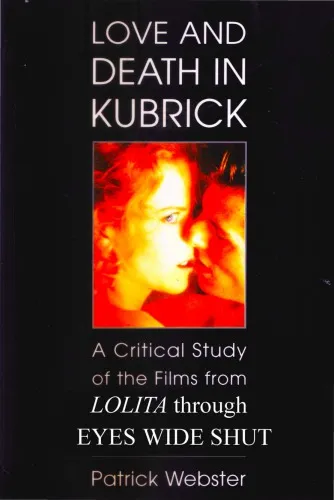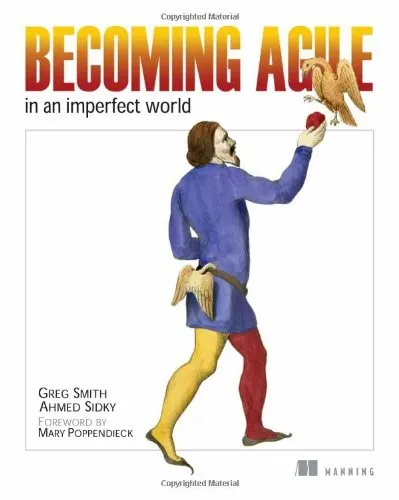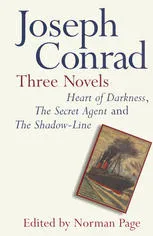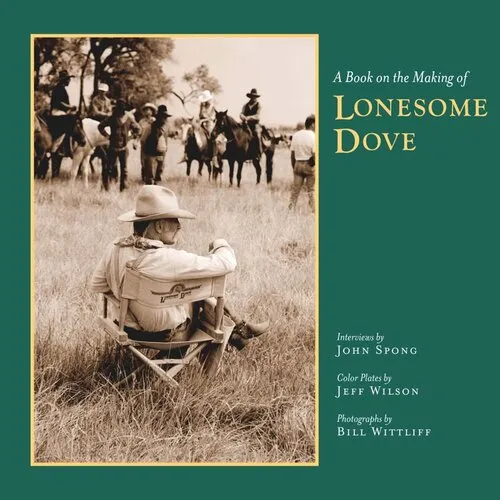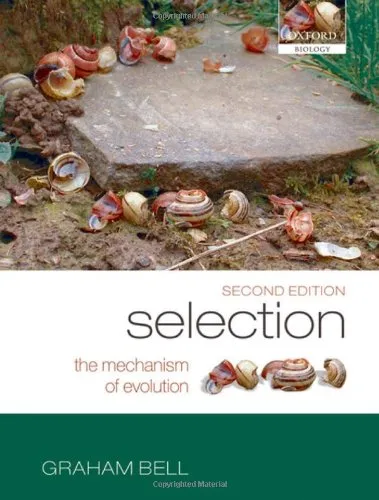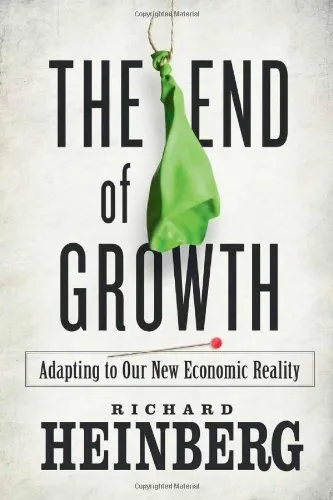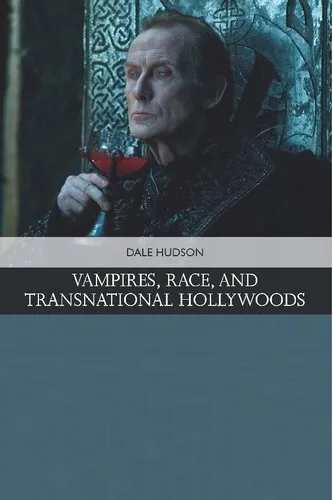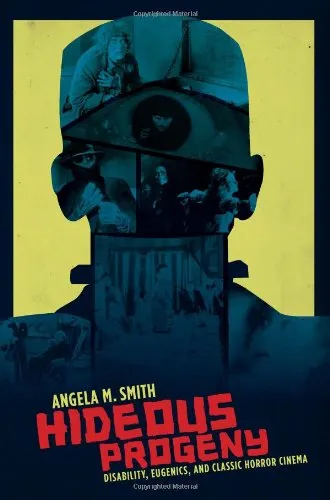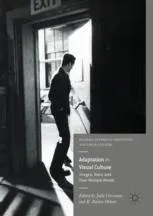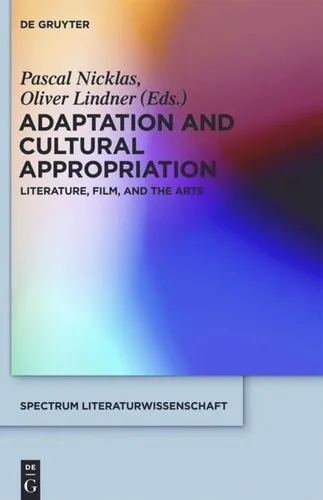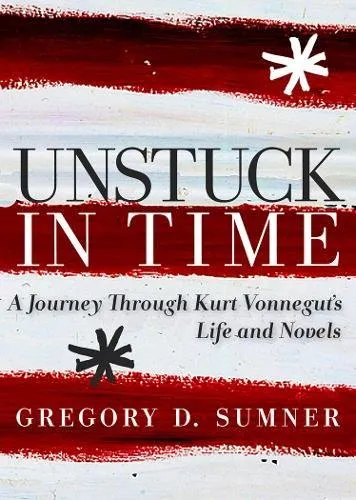Stanley Kubrick and the art of adaptation: three novels, three films
4.5
بر اساس نظر کاربران

شما میتونید سوالاتتون در باره کتاب رو از هوش مصنوعیش بعد از ورود بپرسید
هر دانلود یا پرسش از هوش مصنوعی 2 امتیاز لازم دارد، برای بدست آوردن امتیاز رایگان، به صفحه ی راهنمای امتیازات سر بزنید و یک سری کار ارزشمند انجام بدینکتاب های مرتبط:
معرفی کتاب "Stanley Kubrick and the Art of Adaptation: Three Novels, Three Films"
کتاب Stanley Kubrick and the Art of Adaptation: Three Novels, Three Films نوشته گریگ جنکینز، اثری دقیق و بینظیر درباره یکی از برجستهترین کارگردانهای تاریخ سینما، استنلی کوبریک، و تعامل او با ادبیات در فرآیند اقتباس است. این کتاب یک تحلیل عمیق از جنبههای هنری و تکنیکی سه فیلم شاخص کوبریک ارائه میدهد که هر یک بر اساس یک اثر ادبی ساخته شدهاند.
خلاصهای از کتاب
در این کتاب، جنکینز به پژوهش در مورد روند اقتباس ادبیات به سینما توسط کوبریک میپردازد و تلاش میکند تا تفاوتهای اساسی میان رمان و فیلم را نمایان کند. سه فیلم مورد بررسی در این کتاب عبارتند از:
- A Clockwork Orange: اقتباسی از رمان مشهور آنتونی برجس که به بررسی موضوعاتی مانند خشونت، اخلاق و آزادی اراده میپردازد.
- Barry Lyndon: داستانی برگرفته از رمان قرن نوزدهمی ویلیام میکپیسی تاکری که روایتگر زندگی و سقوط اخلاقی یک شخصیت جاهطلب است.
- The Shining: فیلمی بر اساس رمان استفن کینگ که در آن وحشت روانشناختی با مهارت خاص کوبریک به تصویر کشیده شده است.
کتاب به طور منظم در هر بخش، به مقایسه دقیق میان منبع ادبی و محصول سینمایی میپردازد، و تلاش میکند نشان دهد که چگونه کوبریک مرزهای اقتباس را از سادهسازی صرف به یک تجربه هنری کاملاً جدید ارتقا داده است.
نکات کلیدی کتاب
- تحلیل تطبیقی میان متنهای ادبی اصلی و فیلمها.
- بررسی تکنیکهای بصری کوبریک برای ترجمه مفاهیم ادبی به تصاویر سینمایی.
- چگونگی اعمال تغییرات عمده و خلاقانه در داستانها برای هماهنگی با مدیوم سینما.
- بررسی روابط میان اقتباس، خلاقیت و تفسیر شخصی کوبریک بر آثار.
جملات معروف از کتاب
“Kubrick transforms what he adapts. He doesn’t just transfer but rather translates—a translation both faithful and entirely unique.”
“Adaptation is not merely an act of transferring a story, but a metamorphosis from one art form to another.”
چرا این کتاب اهمیت دارد؟
کتاب Stanley Kubrick and the Art of Adaptation از چند جهت یک اثر مهم به شمار میرود. اول، این کتاب پنجرهای ناب به فرآیند خلاقانه کوبریک به عنوان یکی از شاخصترین فیلمسازان ارائه میدهد. دوم، در دورهای که اقتباس ادبی در سینما همواره مورد بحث است، این اثر به عنوان منبعی ضروری برای فیلمشناسان، منتقدان ادبیات، و پژوهشگران سینما عمل میکند. همچنین، بررسیهای عمیق و دقیق آن به خوانندگان امکان میدهد تا اهمیت اقتباس در روند ارتقای یک اثر هنری از یک مدیوم به مدیوم دیگر را درک کنند.
این کتاب تنها درباره فیلمسازی یا ادبیات نیست، بلکه درسنامهای است درباره خلاقیت، چگونگی شکستن مرزها، و اهمیت تفسیر شخصی هنرمند در بازآفرینی اثر هنری.
Introduction
Welcome to Stanley Kubrick and the Art of Adaptation: Three Novels, Three Films, an insightful exploration of one of cinema’s greatest visionaries and his unparalleled skill for adapting literary works into groundbreaking films. This book serves as both a tribute and a critical analysis of Stanley Kubrick's ability to reinterpret complex novels into cinematic masterpieces, demonstrating his unique approach to storytelling, visual artistry, and narrative adaptation.
Stanley Kubrick's oeuvre is often regarded as enigmatic, thought-provoking, and meticulously crafted. Behind this cinematic genius lies his ability to adapt literature into films that not only resonate with audiences but also reinvent the stories themselves. Kubrick treated the source material as a foundation for expression rather than as a fixed blueprint, allowing him to bring bold, new dimensions to familiar narratives.
This book delves deeply into three exemplary films that highlight Kubrick's exceptional talent for literary adaptation: Lolita (1962), 2001: A Space Odyssey (1968), and A Clockwork Orange (1971). Each of these films represents Kubrick's distinct vision while simultaneously offering a reflection of the novels they were based on. By analyzing these works through the lens of both literature and film, this book provides a comprehensive understanding of Kubrick's artistry, his creative process, and his profound influence on modern filmmaking.
Detailed Summary of the Book
Stanley Kubrick and the Art of Adaptation begins by examining the director's approach to reimagining literature for the screen. Kubrick not only transformed these works into visual masterpieces but also reinterpreted their themes to align with his own creative vision. The book focuses on three films:
- Lolita (based on Vladimir Nabokov's controversial novel): The book investigates how Kubrick navigated censorship challenges while staying true to the novel's dark humor and complex character dynamics.
- 2001: A Space Odyssey (inspired by Arthur C. Clarke's short story "The Sentinel"): Kubrick's partnership with Clarke and their exploration of existential themes showcase how the director expanded a simple story into one of the most iconic sci-fi films ever made.
- A Clockwork Orange (adapted from Anthony Burgess' dystopian tale): The book highlights Kubrick's bold visual style and the moral ambiguities he brought to the narrative through his depiction of Alex DeLarge's journey.
Through a combination of historical context, in-depth analysis, and critical insight, the book provides both fans and scholars of Kubrick's work with a deeper appreciation for his creative genius. Each chapter dissects Kubrick’s methodology and illustrates how he used literature as a springboard to create wholly original cinematic experiences.
Key Takeaways
- Stanley Kubrick viewed adaptation as a process of transformation, not duplication, allowing him to infuse his own artistic identity into every film he made.
- His films transcend the limitations of their source material, presenting universal themes in profound and innovative ways.
- Kubrick’s collaborations with authors like Vladimir Nabokov and Arthur C. Clarke exemplify how respectful dialogues between literary and cinematic forms can yield groundbreaking results.
- His work challenges filmmakers and viewers alike to reconsider the boundaries of adaptation, proving that a faithful retelling is not the only way to honor a story.
Famous Quotes from the Book
"Adapting a novel for the screen is not merely a process of translation; it is an act of creation that builds upon the foundation laid by the author."
"Kubrick shattered the expectations of what an adaptation could be, taking liberties with the text not out of disrespect, but out of a deep reverence for the medium of film."
"To truly understand Kubrick’s films, one must also understand his literary influences. His genius is most evident in how he made those influences his own."
Why This Book Matters
Kubrick's films continue to inspire filmmakers, writers, and audiences across generations. This book provides an essential guide to understanding how Kubrick approached adaptation as both a technical and artistic challenge, allowing readers to see these films—and the novels they were based on—through a fresh perspective.
With its detailed analysis and engaging narrative, Stanley Kubrick and the Art of Adaptation offers readers an opportunity to delve into the mind of one of cinema’s most fascinating artists. Whether you are a film enthusiast, a literature lover, or a Kubrick aficionado, this book presents valuable insights into the art of adaptation and its lasting impact on cinema.
دانلود رایگان مستقیم
شما میتونید سوالاتتون در باره کتاب رو از هوش مصنوعیش بعد از ورود بپرسید
دسترسی به کتابها از طریق پلتفرمهای قانونی و کتابخانههای عمومی نه تنها از حقوق نویسندگان و ناشران حمایت میکند، بلکه به پایداری فرهنگ کتابخوانی نیز کمک میرساند. پیش از دانلود، لحظهای به بررسی این گزینهها فکر کنید.
این کتاب رو در پلتفرم های دیگه ببینید
WorldCat به شما کمک میکنه تا کتاب ها رو در کتابخانه های سراسر دنیا پیدا کنید
امتیازها، نظرات تخصصی و صحبت ها درباره کتاب را در Goodreads ببینید
کتابهای کمیاب یا دست دوم را در AbeBooks پیدا کنید و بخرید
1387
بازدید4.5
امتیاز0
نظر98%
رضایتنظرات:
4.5
بر اساس 0 نظر کاربران
Questions & Answers
Ask questions about this book or help others by answering
No questions yet. Be the first to ask!
